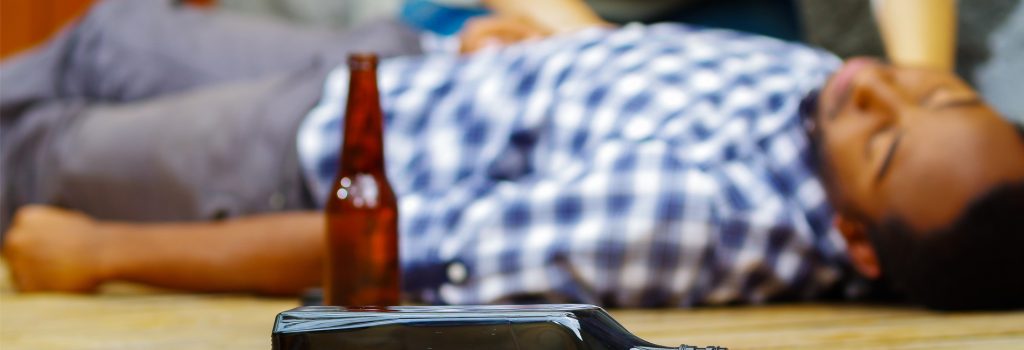
Alcohol Addiction Treatment
Alcohol Addiction Treatment
Table of Contents
The program providing alcohol addiction treatment may be one widely used of all of our programs.
Alcohol consumption is generally normalized in this country.
It is given a prominent role in movies, TV shows, books, and podcasts, among other forms of media.
At the same time, many people drink socially and in moderation without ever developing an addiction.
This makes it harder for many people to both recognize and admit to having a problem with alcohol.
Addictions are complicated and often messy. They change the user’s brain chemistry in ways that can be difficult to understand.
We are here to offer the information, guidance, and tools you need to remove yourself from the grips of alcohol addiction.
Learn how we can help you, your loved one or colleague
Alcohol Addiction Statistics
Alcohol addiction is one of the most common and dangerous forms of substance abuse.
Alcohol-related deaths are the third leading preventable cause of death in the United States, with approximately 88,000 people per year losing their lives to the addictive substance.
Additionally, it is estimated that as high as 40% of all of the hospital beds in the country are used to treat health conditions developed from alcoholism.
Alcohol addiction is dangerous and scary, but it can be overcome with some help.
Immediate Placement
in Alcohol Rehab
Drug and Alcohol Addiction Treatment
Often, when someone is battling an alcohol addiction, they’re also battling drug addiction.
These things go hand-in-hand more often than not, and one activity can trigger the other, making it even more difficult to stop.
In any form of addiction, it’s important to address each problem rather than just the largest one.
Whether it’s alcohol and drugs or alcohol and a mental health disorder, we’re equipped to effectively treat addictions of just about any variety or severity.
Why Alcohol Addiction Occurs
Genetics account for approximately 40-60% of an individual’s risk of addiction. This is particularly true in the case of alcohol addiction, especially when a person is exposed to it at an early age.
Similarly, environmental factors can increase an individual’s risk of addiction.
Things like a turbulent home situation, physical or emotional abuse, ease of access, and the attitude of the person’s parents can drastically alter the risk of addiction any person faces.
People who have mental health disorders are typically at a higher risk of developing an addiction, as well.
Peer pressure and low socioeconomic status are other contributing factors that are relatively common.
No matter the reason for your addiction, or underlying factors that contribute to it, we’re here to help you overcome it all. You don’t have to be a victim or feel trapped in your addictions.
We are constantly innovating, improving, and creating treatment approaches to improve our patients’ lives, health, and chances of sustainable recovery.

Signs of an Alcohol Addiction
Despite being difficult to recognize at times, there are many warning signs to look for when trying to determine the presence of alcohol addiction.
Alcohol abuse can quickly spiral into addiction, and smaller symptoms can snowball into larger ones. The best way to overcome your addiction is to seek treatment as soon as you recognize the signs.
Among others, the most common symptoms of alcohol addiction are:
- You experience frequent or increasing periods of blackout or short-term memory loss
- You have uncontrollable mood swings, including feelings of anger and irritability
- You feel the need to make excuses to drink more (ex. “it helps me relax,” “this is how I deal with stress,” etc.)
- You put off daily obligations so you can spend more time drinking
- You’re distancing yourself from your loved ones
- You drink in secret
- You experience hangover-like symptoms when you’re not drinking
- You feel the urge to drink in the morning to recover from a hangover or steady your nerves
- Your hands tremble when you’re not drinking
Your First Step
If you recognize any of these signs in yourself or someone you love, we can help.
Call today to speak with one of our round-the-clock addiction specialists.
They can perform a free and easy insurance verification, outline your treatment options, and get your feet firmly planted on the road to recovery.
One of the largest barriers that individuals present when discussing the reasons they don’t seek treatment is the associated costs.
Despite what many people think, full or partial rehab treatment programs are covered by many different health insurance providers.
If you don’t have insurance, or if it only partially covers your treatment, please call us to discuss your options. Everything we do is with the health and future of our patients in mind.

Alcohol Addiction Treatment Success Rates
The success rate of any rehabilitation program is incredibly difficult to accurately measure.
With widely varying definitions of rehab, addiction, and other factors, the results are often too skewed to be considered reliable.
Many try to use metrics like the completion rate of each program, rates of sobriety that are often calculated too quickly after treatment ends, unreliable interviews, and internal metric studies.
Instead of trying to track impossible metrics and providing our patients with unreliable numbers to cling to, we prefer to focus all of our attention on the quality of care that we can provide to each individual who passes through our doors.
When we turn our patients into numbers, we lose sight of what really matters. During and after formal treatments, we focus on offering individualized and customized care, innovative program methods, educational tools, and boundless guidance.
This allows us to provide each patient with hope, a place and methods to heal, and the best chance of long-term, sustainable recovery.
Alcohol Addiction Treatment Centers
Before you can find the best treatment center for you, it’s important to decide if you want inpatient or outpatient care.
If your addiction is severe, you may need to go through a medically-assisted detox, and an inpatient stay may be better for you. It may also be better if you experience strong urges to drink, and you want to remove yourself from temptations.
This option gives you greater structure and round-the-clock support. On the other hand, outpatient treatment can be done without requiring a full-time stay. If you have family or work obligations that you can’t leave even temporarily, outpatient treatment is an excellent alternative.
Depending on several individual factors, you’ll be given a treatment plan that requires you to come in for daily or weekly counseling, therapies, and other treatments, and you’ll return home at the end of the session.
If you have a strong support system at home, this can give you everything else you need to recover, but if you face persistent temptations at home, you may want toconsider inpatient treatment.
24 Hour Alcohol rehab Hotline
The Emerald Isle Difference
Rather than addressing one problem or another, we prefer to address all substance abuse issues and underlying mental health disorders at once.
Our customized, patient-centered, versatile, and proven care methods are ideal for working through a wide variety of problems.
When you call our facility, we can help you determine what is the best course of action for you specifically, not what might be the best course of action for anyone with an addiction.
We provide the tools and guidance you need to heal, move on from past traumas, grow, and enjoy all of the benefits of long-term recovery.